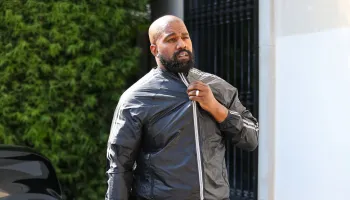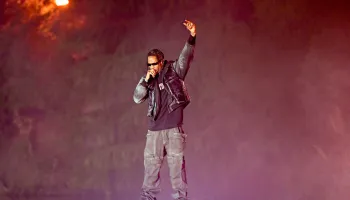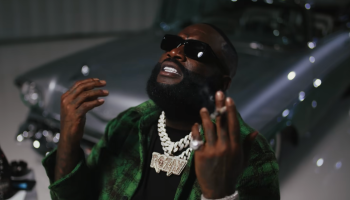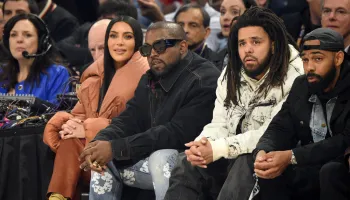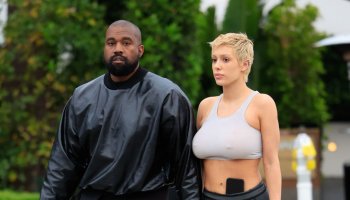The more things change the more they seem to stay the same. Four & a half decades after he demanded that the U.S. government deliver on its previous promise to pay reparations to the very same people she once held in physical bondage, Amerikkkanized Afrikans have yet to be compensated.
As a matter of fact, Original people are still facing many of the same issues as then: Low standards of education, high levels of unemployment, police brutality, an unjust, imperialistic war overseas, added with the ever increasing costs of living here at home. Thusly not much progress has been made since the rebellious Black Power era.
During the monumental ‘March On Washington’ on August 28th 1963, Dr. Martin Luther King Jr. addressed the United Snakes of Amerikkka’s debt to the descendants of the people she had kidnapped, exploited, raped & slaughtered while building up the country to be the super power that it eventually became. He also touched on racial injustice, non-existing employment opportunities, voting rights & police brutality, but the mainstream media continues to classify his dissertation that day as the ‘I Have A Dream’ speech.
“Many missed his economic message. He didn’t just have a dream. A dreamer sleeps and dreams. He made changes, and had a struggle he was prepared to give his life for! In his ‘Have A Dream’ speech – King made a case for reparations, as he pointed it right at Lincoln and said – ‘America has given Black people a bad check which has come back marked ‘insufficient funds’!” – assessed Chairman of Afrikana Studies @ Harlem’s CUNY campus – Dr. Leonard Jeffries.
Although Rosa Parks brought national attention to the racist Jim Crow segregation laws that were practiced in the South with her defiant stance which kicked off the Montgomery Bus Boycott on December 1st 1955, it was Dr. King who organized it. Little mention is made of the people’s economic power that was displayed as they disrupted bus service for the year, hurting the bus company where it counts the most, in their pockets.
“It helped to launch a 10-year national struggle for freedom and justice, the Civil Rights Movement, that stimulated others to do the same at home and abroad,” Richard Wright once wrote.
Since that time the Montgomery Bus Boycott has been utilized as an economic blueprint for Black power, which continues to this present day.
“During the ‘Montgomery Bus Boycott’, Black people used their economic power and brought them to their knees. We should’ve bought our own buses and started our own companies after that. We need to study history so we don’t make the same mistakes – as Dr. John Henrick Clarke has said,” Jeffries suggested.
Dr. King’s work reached beyond the segregated South where he was raised. On June 23rd 1963 in Detroit, Michigan, the peaceful warrior addressed the audience:
“Almost one hundred years ago Abraham Lincoln signed an executive order which was to take effect on January the first 1863. This executive order was called ‘the Emancipation Proclamation’ and it served to free [Blacks] from the bondage of physical slavery. But one hundred years later [[Blacks] in the United States of America aren’t free.”
Rarely do people refer to some of King’s other lectures, such as – “Beyond Vietnam: A Time To Break Silence!” – which King shared with audience members at Harlem’s Riverside Church on April 4th 1967, exactly 365 days prior to his assassination in Memphis, Tennessee. In that lecture – “He spoke against the political and economic interest of the U.S. in Vietnam, and that’s what got him killed!” – professed Dr. Jeffries.
Brother Sekou reflected on Reverend King’s view on Vietnam :
“What King spoke about then, is the same thing that is going on today in Iraq! How America can’t find any money to help the poor here, but they can find it to kill innocent people over seas, even though the war is sucking up all of the country’s resources. Also how Black people are fighting for freedom overseas, but are denied of it here!”
Beyond Vietnam:
“Even when pressed by the demands of inner truth, men do not easily assume the task of opposing their government’s policy, especially in the time of war,” Reverend King emphatically stated. “There is at the outset a very obvious and almost facile connection between the war in Vietnam and the struggle I and others have been waging in America.”
He continued, “And I knew that America would never invest the necessary funds or energies in rehabilitation of its poor so long as adventures like Vietnam continued to draw men and skills and money like some demonic, destructive suction tube. So I was increasingly compelled to see the war as an enemy of the poor and to attack it as such.”
King also spoke about the injustices practiced by the U.S., both at home & abroad, that day, citing:
“We were taking the Black young men who had been crippled by our society, and sending them eight thousand miles away to guarantee liberties in Southeast Asia which they had not found in Southwest Georgia and East Harlem. And so we have been faced with the cruel irony of watching Negro and white boys on TV screens as they kill and die together for a nation that has been unable to seat them together in the same schools. So we watch them in brutal solidarity, burning the huts of a poor village, but we realize that they would hardly live on the same block in Chicago. I could not be silent in the face of such cruel manipulation of the poor.”
As we take this day and celebrate the legacy of one of our great leaders, let’s look and reflect on who Dr. Martin Luther King, Jr. really was and not the man whose image Amerikkka “whitewashed.” Dr. King was not a pacifist or a “yes boss man” but a thinker who used his mind to win battles over his enemies.
As the saying goes, they build you up only to tear you down and truth be told, Dr. King died broke and the so-called White America who “loved” him viciously turned on him after he denounced the Vietnam War. M.L.K. had a dream but more than that, he possessed the tools to make it a reality before he was assassinated. As we celebrate King’s birthday, just imagine if the dream had been realized by any means necessary.
Stevie Wonder – “Happ Birthday (MLK Tribute)”








